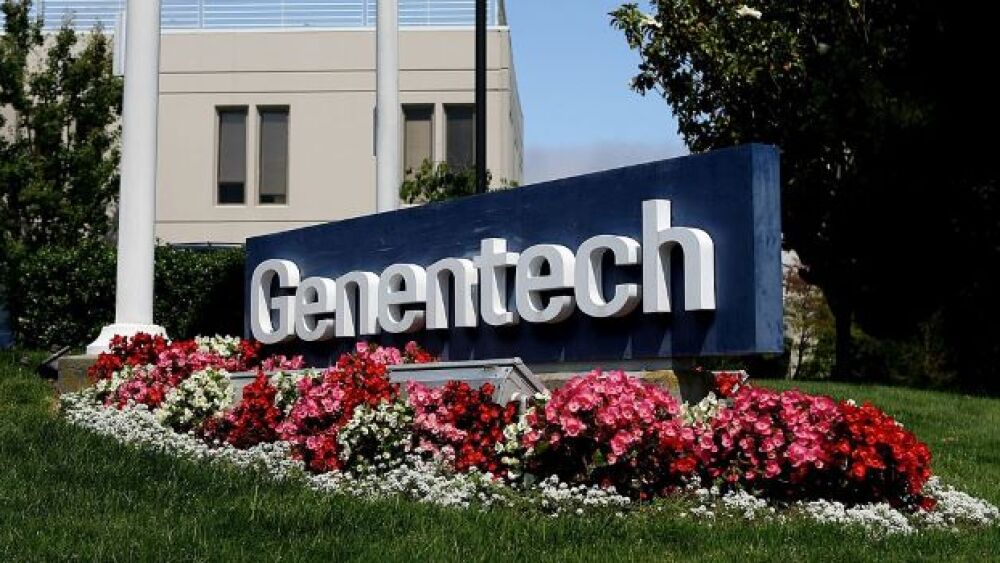The FDA’s decision is based on positive results from several Phase III studies, including the TENAYA and LUCERNE clinical trials.
Justin Sullivan/Getty Images
The U.S. Food and Drug Administration has approved the use of Genentech (Roche)'s Vabysmo for the treatment of wet age-related macular degeneration (AMD) and diabetic macular edema (DME).
Vabysmo (faricimab-svoa) is a prescription drug administered via injection to the eye. It is the first bispecific antibody approved for this indication and works by targeting and inhibiting two disease pathways linked to a wide range of retinal conditions. Vabysmo helps stabilize blood vessels and neutralizes angiopoietin-2 (Ang-2) and vascular endothelial growth factor-A (VEGF-A), both of which contribute to vision loss.
The FDA’s decision is based on positive results from several Phase III studies, including the TENAYA and LUCERNE clinical trials. TENAYA and LUCERNE evaluated the safety and efficacy of the drug compared to aflibercept, the current therapy, in 671 and 658 participants, respectively. Both trials met the primary endpoint of a significant average change in the best-correct visual acuity (BCVA) score baseline at weeks 40, 44, and 48.
The secondary endpoints were also met, such as safety, the percentages of participants receiving treatments at two, three, and four months and the percentage of participants that achieved gains and losses of 15 letters or more in BCVA. The trials also looked into changes in the central subfield thickness (CST) and changes in the total area of choroidal neovascularization lesions and leakages.
Wet AMD is the leading cause of blindness in people aged 60 years and up in the United States. Around 11 million people in the country are said to have some form of AMD. Of this number, some 1.1 million have wet AMD. DME affects around 750,000 people in the U.S. alone and is linked with blindness and decreased quality of life if left unaddressed. DME is expected to grow as the number of diabetes cases also increases.
“Vabysmo represents an important step forward for ophthalmology. We now have the opportunity to offer patients a medicine that could improve their vision, potentially lowering treatment burden with fewer injections over time,” said Charles Wykoff, M.D., Ph.D., director of research at Retina Consultants of Texas in Houston and the lead investigator of the Phase III trial, in a statement.
In addition to TENAYA and LUCERNE, Genentech has ongoing long-term extension trials for the drug in DME and wet AMD participants. The AVONELLE-X, an extension of the two prior trials, is looking into the long-term tolerability and safety of Vabysmo, while RHONE-X, an extension of other trials, RHINE and YOSEMITE, is evaluating the same. More trials, namely BALATON and COMINO, are also being prepared to test the drug’s effectiveness on macular edema after retinal vein occlusion.
The FDA is not the only regulator assessing Vabysmo, which is expected to be out in the U.S. market within the next few weeks. The European Medicines Agency is also evaluating the drug’s Marketing Authorization Application.





